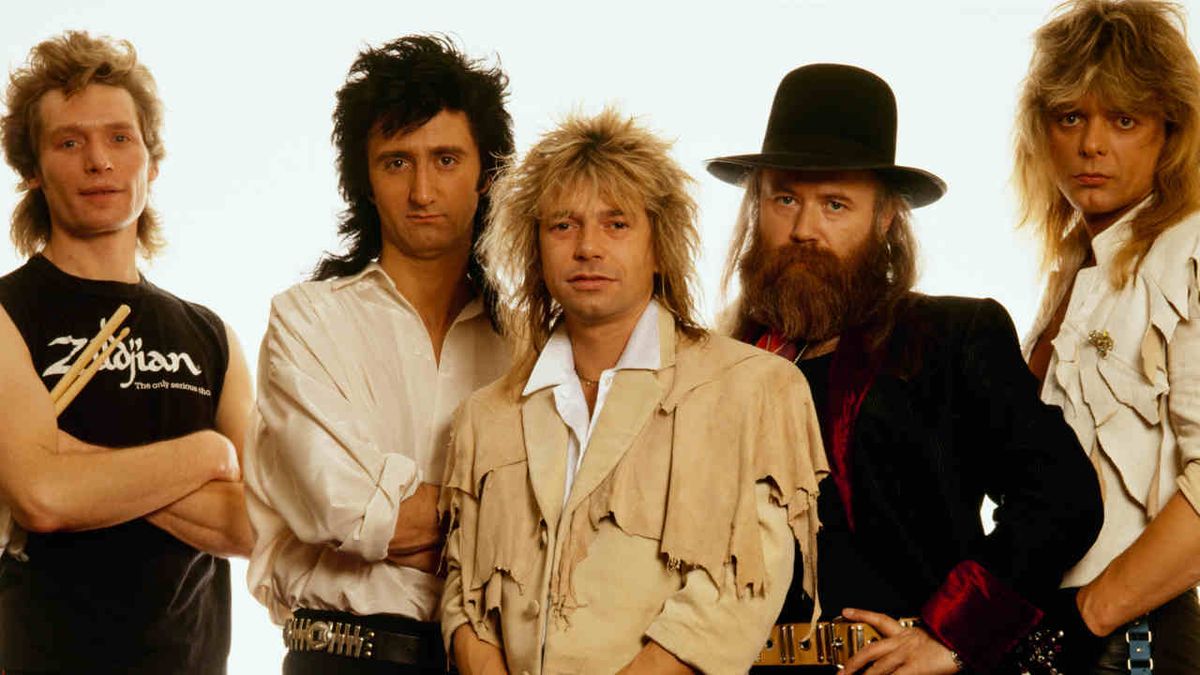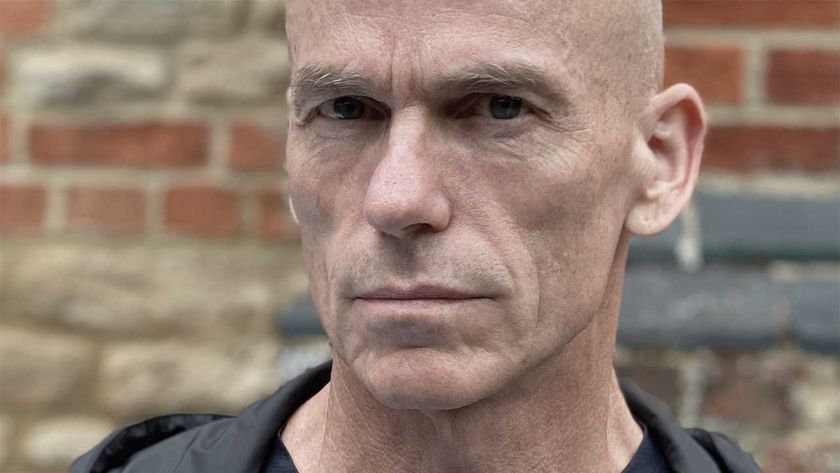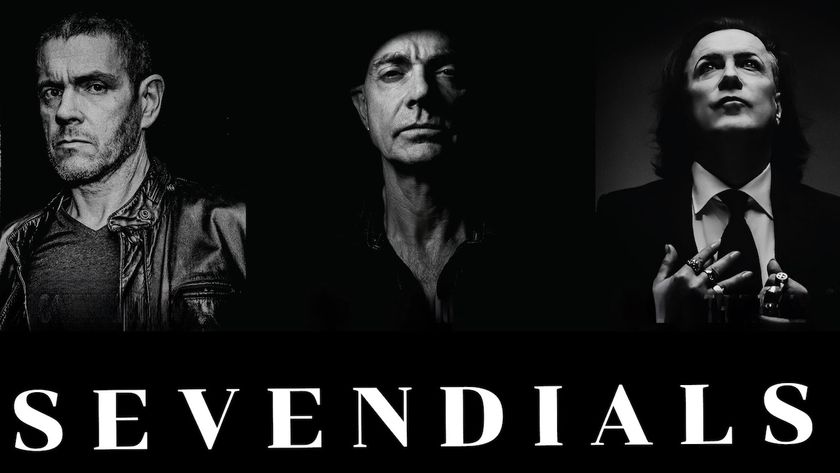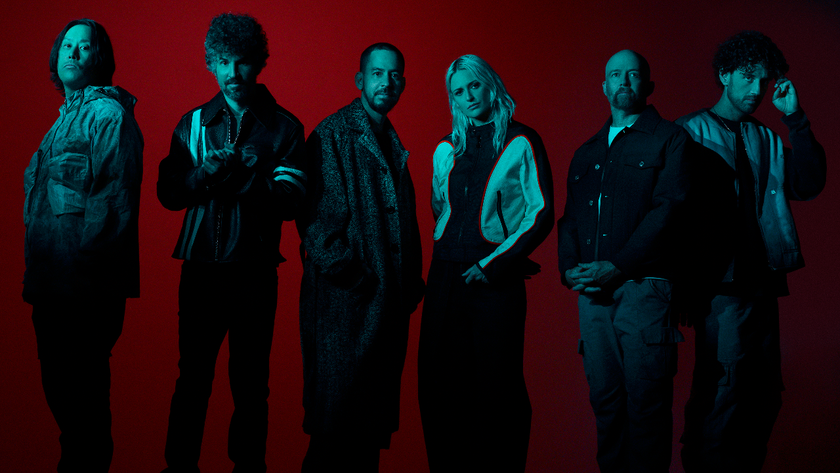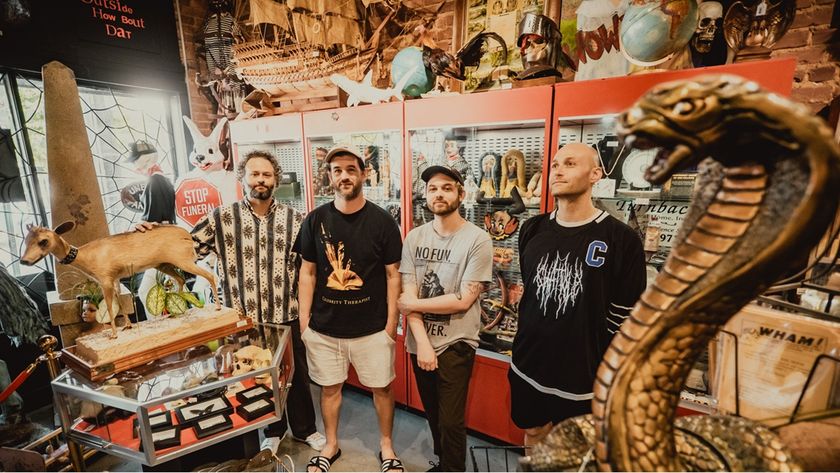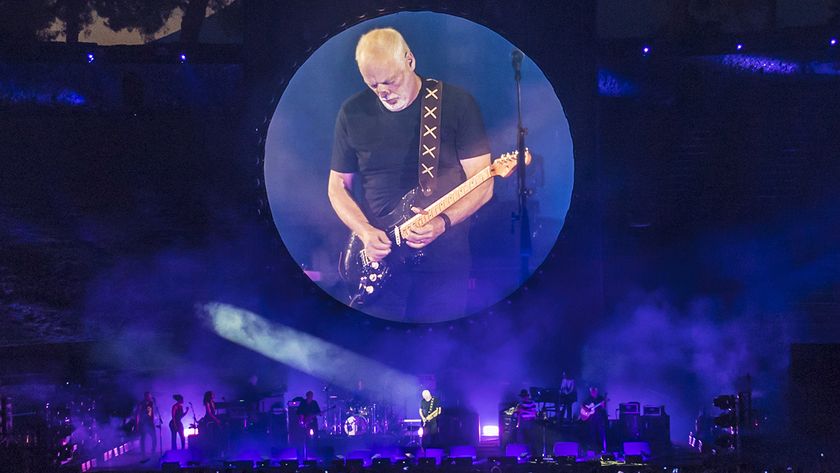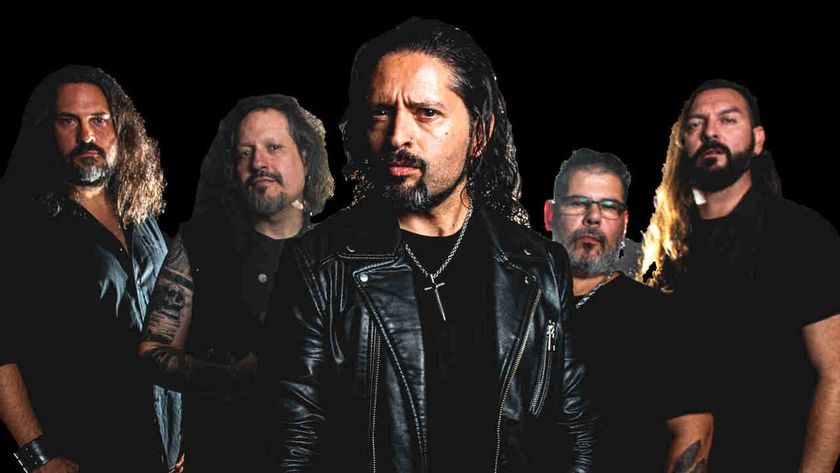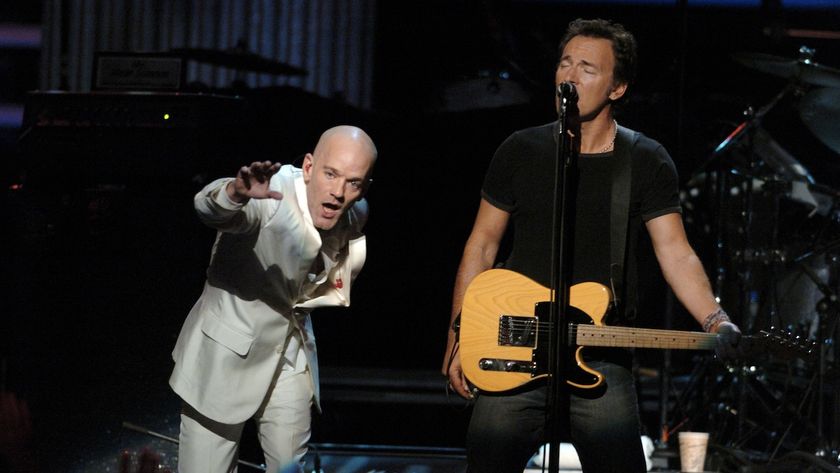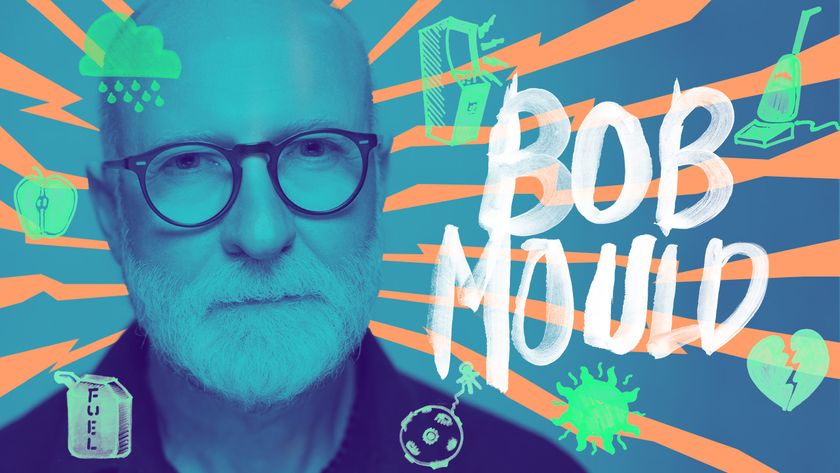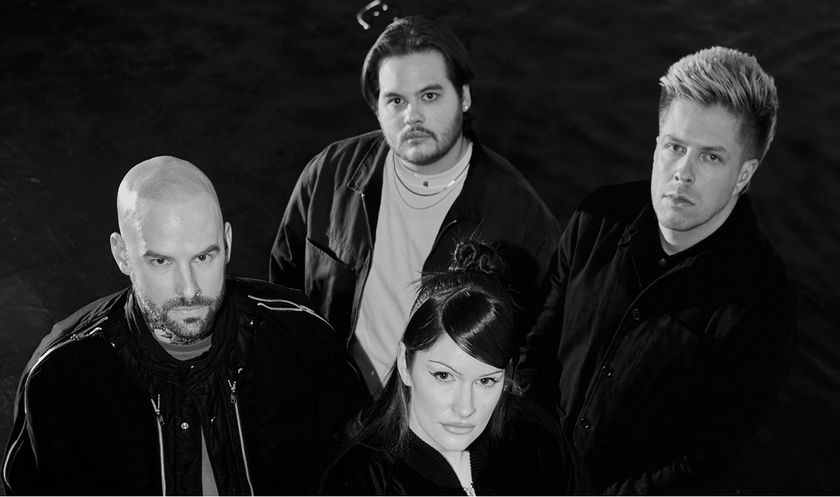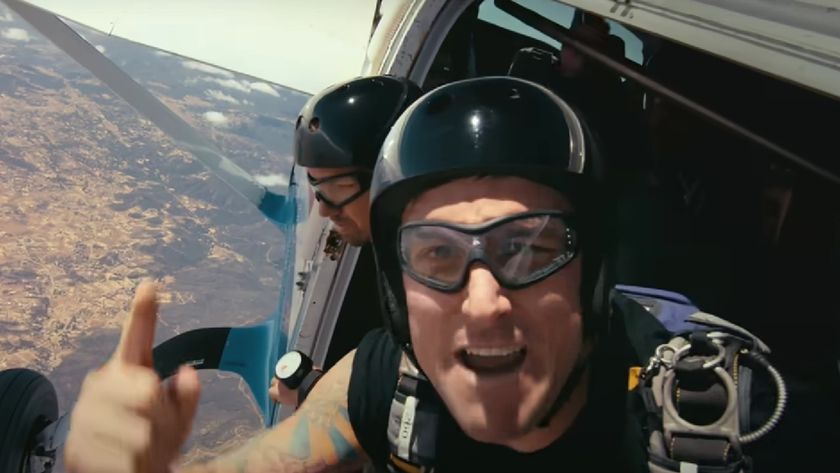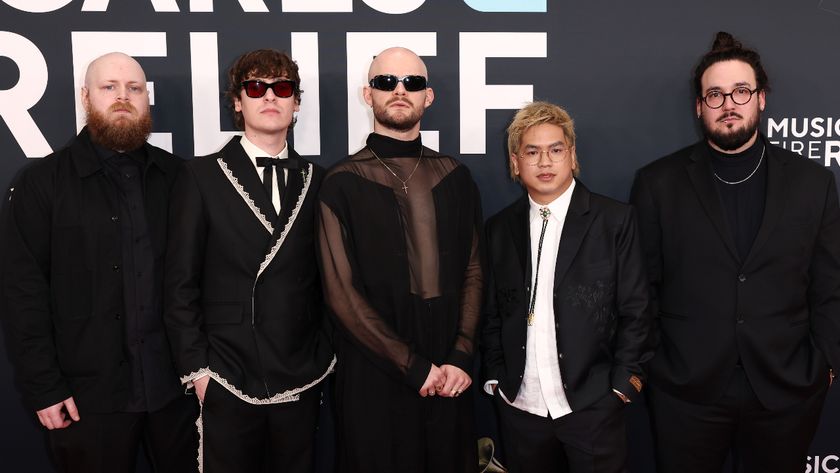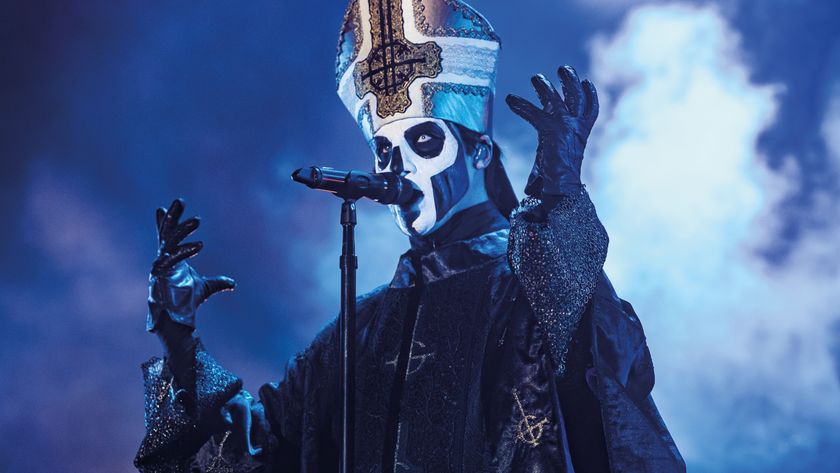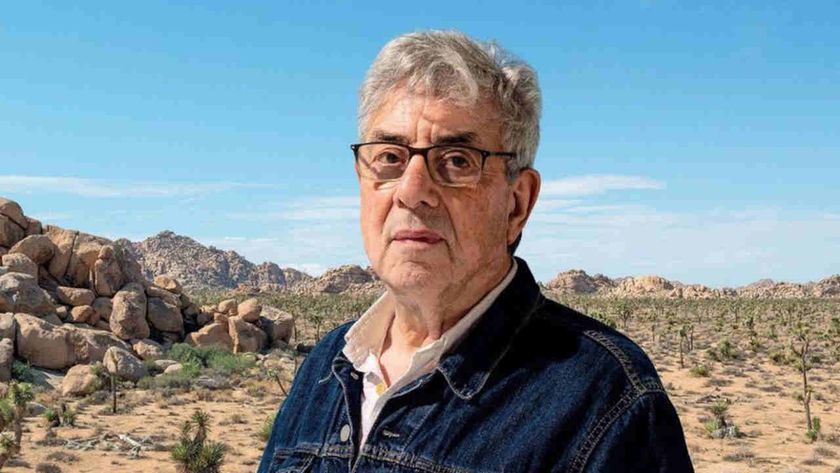It’s late in Magnum guitarist Tony Clarkin’s house – the living room clock is ticking through the witching hour. This is early 1985, back in the days before satellite TV, when all four channels in Britain shut down for the night at 12pm. Clarkin has another drink, waits for the white dot to appear in the middle of the TV screen, then turns off the box.
He picks up his guitar from beside the sofa. He thinks about the state his life has been in: his mum has just died; he’s been quite seriously ill; he has no record deal; the singer in his band is ringing around journalists asking if they know of anyone in need of a decent frontman.
Clarkin is feeling melancholic and vulnerable, and he doesn’t really know what’s going to happen next. The world is a less certain place for him now. He begins to fiddle about on the guitar, coming up with fragments of things – riffs, chord sequences, rough tunes, all informed by his state of mind. Night after night he sits up, waiting for the telly to finish and then working on his acoustic guitar until he has finished a song. He writes 10 songs end over end, working on one until it’s finished and then immediately beginning another.
“I like the pressure of time,” he says, remembering his fevered mood. “I’m better under pressure, when I’ve got to get things finished. If you give me a year, I’ll take a year. I’m not a prolific writer.”
When the tunes are done, he searches for subjects to write about. He comes up with a lyric based on a programme he watched about squaddies in the First World War, terrified young men who’d been shot for cowardice or desertion. Another lyric arrives via an idea about packing up and moving to London in search of a change of luck. More come together: nice little lyrics about loneliness or longing, or life passing him by. Finally he’s done. Ten songs – when he writes an album, he never writes more than he needs. He takes them to what’s left of his band, with no idea whether they’ll be interested in playing them or not.
“When he first came to me with the songs,” Magnum singer Bob Catley recalls, “I thought, ‘Oh, okay, this is different’. I think we realised our The Eleventh Hour album was self-indulgent, and that we’d been playing for ourselves.”
Two decades later, Clarkin seems mildly bemused to find himself talking about the album that those 10 songs became, On A Storyteller’s Night, released in May 1985. “Remind me exactly what’s on it again?” he says in his gentle Brummie. “I haven’t listened to it for about… oh, probably 10 years.”
Luckily for this interview, and for the perceptions of the many thousands who bought and enjoy that record, such disregard is, he explains, quite normal.
“I never listen to our stuff. Once it’s done, it’s done for me. I’ve always been like that. How Far Jerusalem’s on there, isn’t it? We do that good live now. As I remember, it never came out quite how I wanted on the album, how I heard it in my head. And Les Morts Dansant? We still do that one, too. We do a real good version of that. And… Hang on, what’s the other one we’re doing… Bob! Bob!”
He shouts across the studio to his lifelong friend and the singer of his songs, Bob Catley. “What’s that other one, Bob? Oh yes, All England’s Eyes. We still do that one an’ all.”
Some of the songs may feel a little distant to him, but Clarkin recognises their time as being some kind of fulcrum in his life and in the life of Magnum, one of England’s most quirky and honest, and least fashionable, bands.
The West Midlands had set some precedents for Tony Clarkin – Led Zeppelin, Black Sabbath and Judas Priest had, to varying degrees, been shaped by the area, whether it was Zeppelin’s occasional bucolic mysticism, Sabbath’s backstreet doom or Priest’s unyielding urban metal. Clarkin’s Birmingham, his England, was very different. The songs he wrote for On A Storyteller’s Night were spun through his particular and peculiar vision of a rustic and charming Britain; a Britain where Tolkien met Rupert Brooke in a haze of student-union dope smoke.
It was a tone and style he had been developing over some five albums of galloping pomp rock, most successfully on 1982’s Chase The Dragon. That record, their third, even got a few people beyond Magnum’s hairy, real-ale fan base excited. They were excited again after the following The Eleventh Hour, a bloated rewrite of Chase The Dragon that contained all of the pomp and none of the charm. It was as if The Eleventh Hour was a herald for the bad times, a Jonah of an album that almost dragged Magnum down with it.
The band made some half-hearted plans to split after an appearance at the 1983 Reading festival. Then Clarkin got ill, and the future became bleaker still. Magnum’s drummer, Kex Gorin, left to go and play with Robin George. Mark Stanway, Magnum’s keyboard player, was helping out George too, and he’d also joined Phil Lynott’s new band, Grand Slam. Bob Catley rang music journalist Malcolm Dome and asked him if he knew of any bands who were looking for a singer. Tony, meanwhile, lost his mother.
“It really screwed me up,” he says. “It’s something you obviously can’t sort of avoid, losing a parent, but I was quite raw. It happened only maybe a month before I started writing the songs.”
What Tony Clarkin had was a set of songs quite different to the ones the band would end up with. For a start, he had written three gargantuan pomp tunes on one acoustic guitar, and then sung them in his self-described “mumbling voice” – imagine The Final Countdown sung by Leonard Cohen. No wonder How Far Jerusalem, Les Morts Dansant and On A Storyteller’s Night sounded “a bit laid back. They weren’t how I’d heard them in my head”.
The three of them – Clarkin, Catley and Lowe – worked away on them, turning the laid-back acoustic versions into pomp-pop muthas.
When it became apparent that Magnum were about to pull off a minor resurrection, they took on a new manager, Keith Baker. Soon the line-up was filled out by Jim Simpson on drums and Eddie George on keyboards. There was a sense of renewal and reinvigoration, led by the new songs. Magnum were working once more, even if it made Tony Clarkin feel slightly uneasy.
“I can remember being worried about the album even then,” he says. “Someone said that the songs were a lot more commercial, and I thought, ‘Oh God, what’s that supposed to mean?’ I’d stepped out of what was comfortable for me.”
But then maybe worry was Magnum’s natural state. There was, after all, plenty to worry about. Primarily, they didn’t actually have a record deal. “I think we approached every record company in the country, and they all turned us down,” Clarkin says. “Magnum,” he adds, perhaps unnecessarily, “were not a very commercial band.”
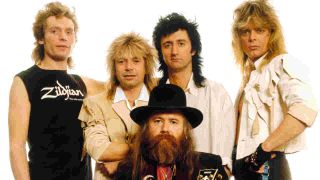
Enter Paul Birch, a resident of Wolverhampton noted for his cowboy boots and a frosted blond hairdo that rivalled anything on LA’s Sunset Strip. Birch was also a man who had his own label, FM/Revolver. Smart enough to realise that Magnum had a ready-made fan base, some decent songs and a bizarre and beardy charisma, Birch signed them up.
“He did alright out of it, too,” Clarkin notes. “I think he bought his Rolls-Royce on the back of that album.”
The band recorded in Birmingham, working the material over again with producer Kit Woolven. Things moved quickly, driven forward as much by financial necessity as creative momentum. With keyboard player Mark Stanway back in the band, Magnum were a tight unit, and at the band’s core were Clarkin and Catley.
“It’s a close friendship, but in the studio I don’t give any quarter,” Clarkin says. “Bob knows that. We’ve always been that way. It’s tough trying to interpret someone else’s songs; sometimes you can be miles off. But he does it better than just about anybody.”
“I’ve got to know what the song’s about,” Catley says. “Anybody can just sing songs. Doing them properly, that’s hard. That’s the challenge, that’s what I strive for. And I need guidance. I need support. But what you’ve got there is the best that we could have. I think he got the songs right. It was like a breath of fresh air.”
Indeed Catley produced three of his greatest performances for the record’s show-stopping tunes: How Far Jerusalem, On A Storyteller’s Night and Les Morts Dansant.
All the songs – from the straight pop of Two Hearts and Steal Your Heart to more studied and evocative pomp things like Before First Light and Just Like An Arrow – were imbued by Clarkin’s quirky vision of an anachronistic England: a country of brooding skies and twilight alehouses. It was whimsical, certainly, and unashamedly ambitious, but it was also honest and heart-felt. It was monstrously uncool, too. But for all of its convoluted and lofty content, the album On A Storyteller’s Night had a very natural appeal.
“It makes me feel good when I hear it,” Catley says. “I listen to a lot of our albums, and it’s my favourite, I think. There’s something about the tunes and the way it’s structured that gives out a very warm feeling. Lots of people have said to me that it’s an album they’ve listened to when they’ve been having a hard time in life and it’s helped them in some way. I can’t really explain it any better than that.”
Rodney Matthews’s sleeve art was important, too. What Catley calls a “Lord Of The Rings-type scene, where an old man is telling this story”, caught a mood in the same way that the songs had. “It’s quite explicitly English,” Catley says. “I think we’re a very English band.”
Almost as soon as the record was released it became Magnum’s most successful album: “It went into the charts at number 44 or something,” Clarkin recalls, “and it seemed to have this amazing momentum straight away. We actually sold, I think, about 100,000 in Britain. And then someone gave it to a guy who worked for Polydor in Germany, he came and saw us play, and he said he wanted offer us a record deal and all that. That’s how it always seems to happen with us.”
He pauses for a moment, thinking about the instant that put his life on a new course. “I really don’t know why people like it so much,” he says. “It seemed like a whole new thing at the time; they liked the sleeve, they liked the music. At the time, I think I felt it was the best album we’d done, but it probably sounds awfully dated now. Then again, I’ve not heard it for 10 years, so I don’t suppose I know.”
Originally published in Classic Rock issue 79. Tony Clarkin passed away in January 2024
